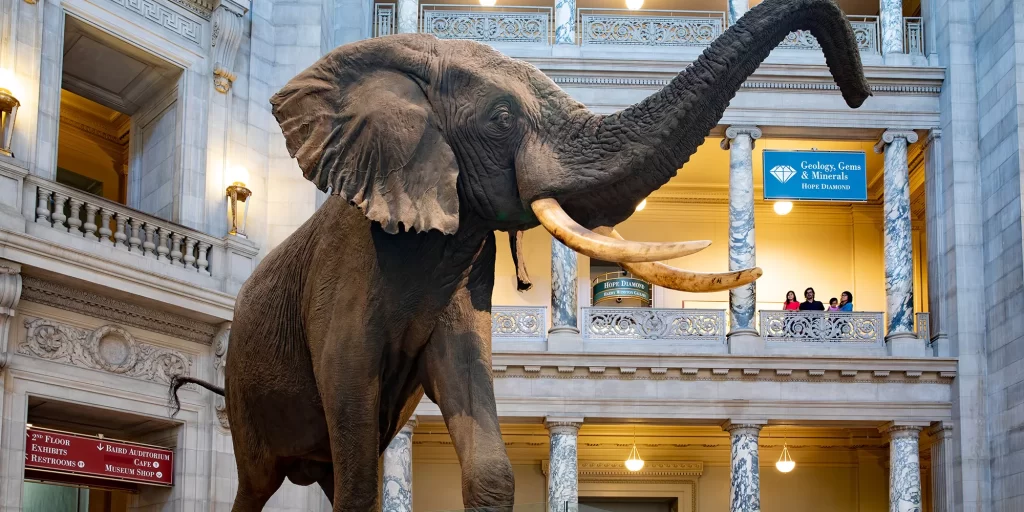Explore the natural world around you, discover dinosaur fossils and more at this free gem on the National Mall.
Planning your visit to the Natural History Museum
The Smithsonian National Museum of Natural History opened in 1910 to invoke discovery and education of the natural world. Its green dome and immense size (comparable to 18 football fields) are signatures, as well as the 140 million-plus natural science specimens and cultural artifacts that the museum contains.
The Museum of Natural History is centrally located in Washington, DC on the National Mall. Like all Smithsonian Institution museums, admission is free. Its regular hours are 10 a.m. – 5:30 p.m., but hours are extended during the spring and summer with a closing time of 7:30 p.m. The museum is open every day of the year except Dec. 25. The most convenient way to reach the museum is via public transportation. Public parking is scarce, but there are parking spaces available for visitors with disabilities. If using Metrorail, take the Orange or Blue lines to the Smithsonian station and use the Mall exit. If taking Metrobus, use the 32, 34 or 36 routes.
What’s inside the National Museum of Natural History?
The museum contains some of the most famous artifacts in the world. The Janet Annenberg Hooker Hall of Geology, Gems and Minerals has the supposedly cursed Hope Diamond on display. Meanwhile, Q?rius, the museum’s education center, offers teens and tweens a lab where they can make their own scientific discoveries.
After a five-year renovation, the museum has reopened its David H. Koch Hall of Fossils. The 31,000-square-foot exhibit’s theme is Deep Time, borrowed from a scientific phrase that illustrates how Earth’s history has played out over billions of years. Prepare to be amazed, overwhelmed, engaged and dazzled by one of the biggest exhibitions to come to DC in years.
Other permanent exhibits include an insect zoo and The Sant Ocean Hall, which features an exact replica of a living North Atlantic right whale.
Soirce: Washington DC


